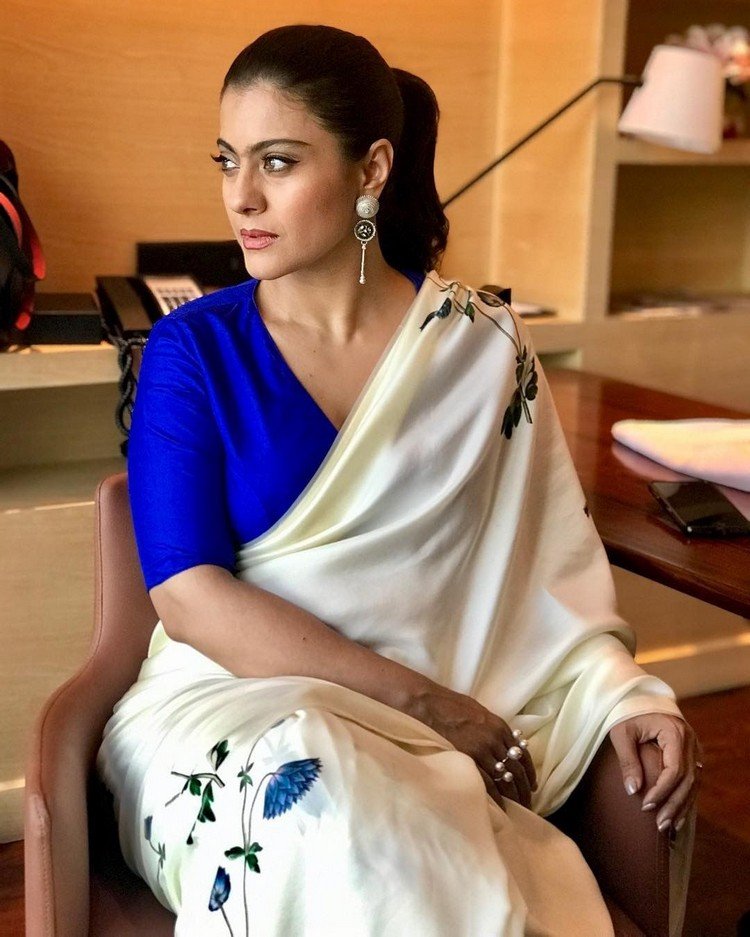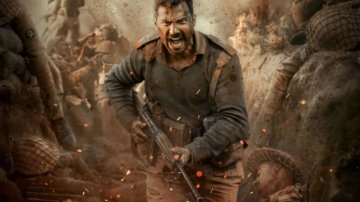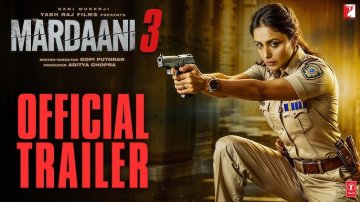Kajol Interview: “In Today’s Time Every Kind Of Film Works”
Mohnish Singh |Jan 10, 2020
Kajol, the six-time Filmfare Award winning actress, can be currently seen in historical drama "Tanhaji: The Unsung Warrior" alongside her husband, Ajay Devgn.
- Fashion Spotlight: Bhumi Pednekar Captivates in Eye-Catching Black Outfit
- Top Bollywood Actresses Who Look Sexiest With Short Hair
- Karthik N Keerthi Reddy’s Love Story Is Just As Normal As Ours But What We Regret The Most Is...
Kajol is one of the finest actresses of Hindi cinema, who has on her resume a number of successful films. Last seen in Helicopter Eela (2018), the six-time Filmfare Award winning actress can be currently seen in the much-talked-about historical drama Tanhaji: The Unsung Warrior (2020). Besides her, the high-profile film also features her husband Ajay Devgn who play the title role.
A few days before the release of the movie, STARBIZ met Kajol to discuss her latest offering in detail. In a freewheeling interview with us, Kajol sheds light on her character in Tanhaji: The Unsung Warrior, how she managed to pull off a historical character that has almost zero information about it, her preparation for it, and much more.
1. How much did you work hard for your character?
When it comes to my character, I feel I am very lucky as I had a lot of equipment, that is our director Om Raut and our team’s research. We have been working on this project since past five years, researching and talking to people, and then we started the production. So, we did a lot of work on the research of the film, what everything should look like, how the sets will look like, etc.
We also worked with Nachiket Burve, who designed the clothes for the whole film. He had researched on how the clothes should be, the colours which were used in that era and are not in this era. Mickey Contractor has done my make-up for the film, so he is a star in his own right. He thoughtfully done the make-up of the film. So, I think it’s everything put together. Like I said, there were many people with me who have bought Savitri Malusare on big screen.

2. Compared to the documentaries made on Tanhaji Malusare, there aren’t many made on Savitri Bai Malusare. How difficult was it to portray her character on screen?
I think that is all we have. There is very little written about Savitri Malusare and when it comes to Tanhaji Malusare, there is information about him but that does not suffice. So, I think even though he was such a big character, even though he was such an important part of history, there is not much of research written in history. There is probably a beginning, a middle and then there is an end. If we, as filmmakers, want to put it into a two-hour film, we have to weave all that together. We have to put it altogether and make a film that is interesting enough for you to watch, not documentary.
Tanhaji is a film that we have made. So, we have tried to imagine what things would have been like and create parts of it. To weave one incident with another. How did the battle happen? Where did it happen? When did it happen? Did it happen at the day time or evening? Even these things are not written. So, it is all that put together. We have to put into place and make it believable.
I would say the same thing for Savitri Bai as well. What is written about her is that she had a son, the son was about to get married and they decided to cancel the wedding till we win Kondana. Now that is a very big decision and the fact that she supported her husband gives credence to what kind of a character she was. She must have been very, very strong to be able to do that. Women who allow their husbands to go on the battlefield and apply the red tikka before they allow them to go, that is a different kind of strength. They smile and say that go and fight for the country. I think that is a different level of sacrifice which we cannot even think of in today’s generation. We cannot. We go to airports to say goodbye, we cry and bring garlands. If he doesn’t come back, how will you get on with life? So, I think that’s an amazing feeling.
3. You are familiar with Marathi culture. How helpful was it for your character?
It was very helpful. Like I said, I subconsciously know that my grandmother’s mother has seen them wearing nauvari and have seen them speak Marathi. There are many marriages that took place in my family where people used to wear nauvari. I wore a nauvari for my own wedding. So, it is a part of my culture I would say. It has definitely helped me as far as the character and the body language is concerned. I think body language is a very important thing. You can convince the audience with your body language whether you like this particular thing or not. So, body language is a very, very big deal. The nauvari sari and taking the ghunghat over your head and when you walk, the way you walk changes.
There is a shot in the trailer where we three are climbing stairs towards the temple. If you observe that shot, it is a very simple shot but then you understand wholly that how people walk when they wear a sari and if you climb those stairs wearing pants, it is entirely different, if you wear a normal sari, you will climb differently. So, the complete body language goes through a drastic change with clothes.
4. There are different kinds of audiences who want to see you in different kinds of films. There are few people who want to see you in action films, some want to see you as a bubbly character. Do you think the audiences have changed because the kind of films which we see today?
I feel that in today’s time every kind of film works. The standards of our films have changed and fortunately I can say that the audience has also changed. Audience is also willing to watch films or watch all different kinds of films. It’s not necessary that it has be a film of a particular genre. I mean films which do not have a genre, even if it is a brother-sister story, people will watch that too. If they find it interesting, if they like the songs of the film even then they will go and watch the film. I think that is a very big thing and that we have to take into consideration that because of the fact that people from today’s generation have seen everything. They have watched Hindi films, German films, English films, Korean films. Everybody has a phone today, there is so much of data. So, I think they have watched everything and that in itself is a big deal for us as a film industry because we realise that now standards have to be higher. What was okay few years ago is not working anymore. We have to make a film on better standard, we have to make a film that is different and the upside of that is that we can make films which are different as well. So, I think I am very grateful to the audience for having brought in their viewpoint.
5. Before doing this movie how much did you know about Tanhaji Malusare?
I know a lot about Tanhaji Malusare. A little more than the history books, because my grandmother had told me about the character of Tanhaji Malusare. My relatives told me a lot. They stay in Pune. Some or the other way he is remembered, so it is not something I don’t know about. I know a little more than the history books and a little less than the film.
>>> Related post: Kajol Hit Movies To Prove Her Irreplaceable Place In The History Of Indian Cinema
- Tag


Comments
Sort by Newest | Popular